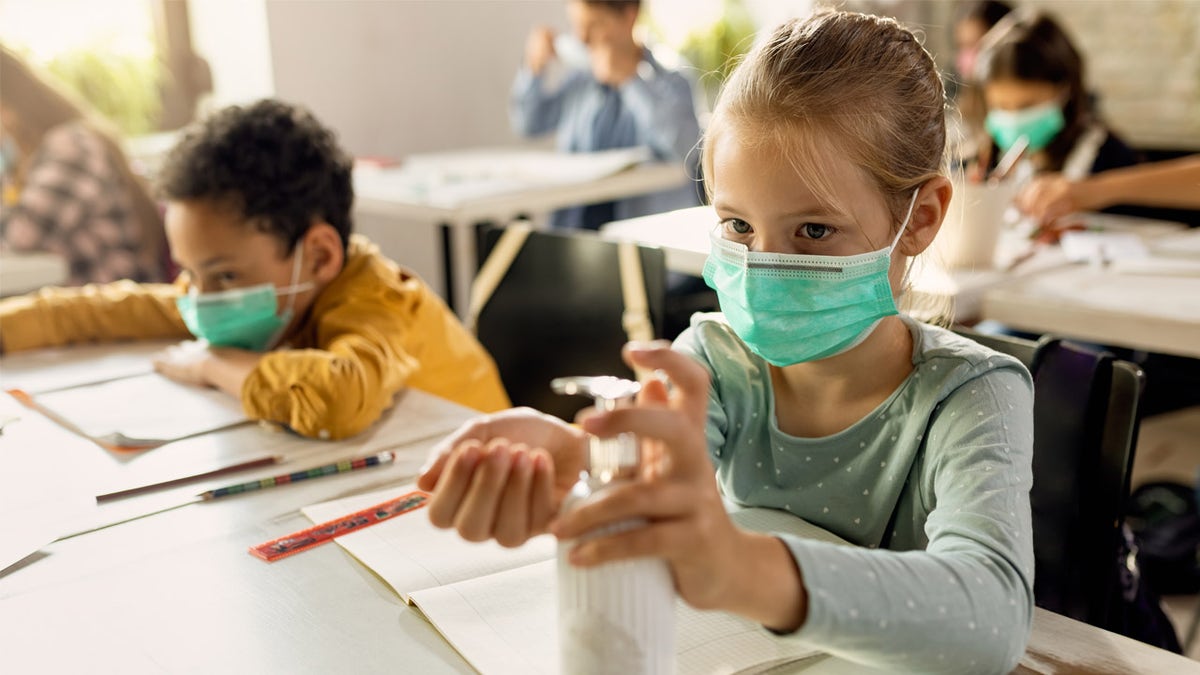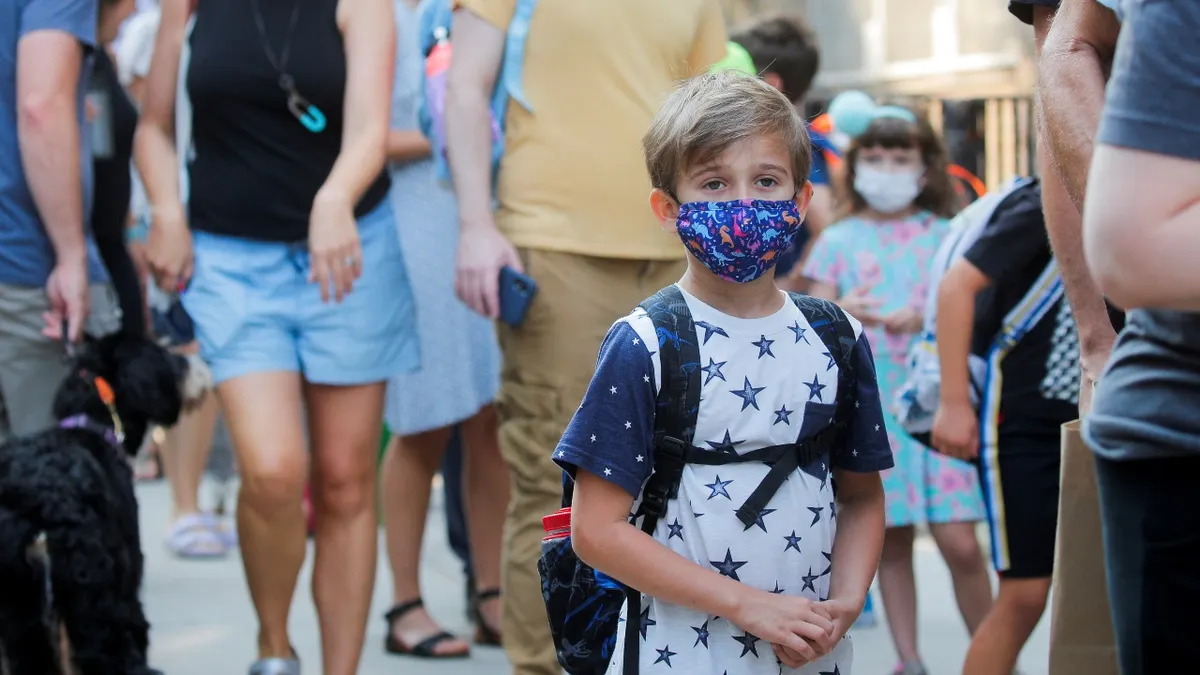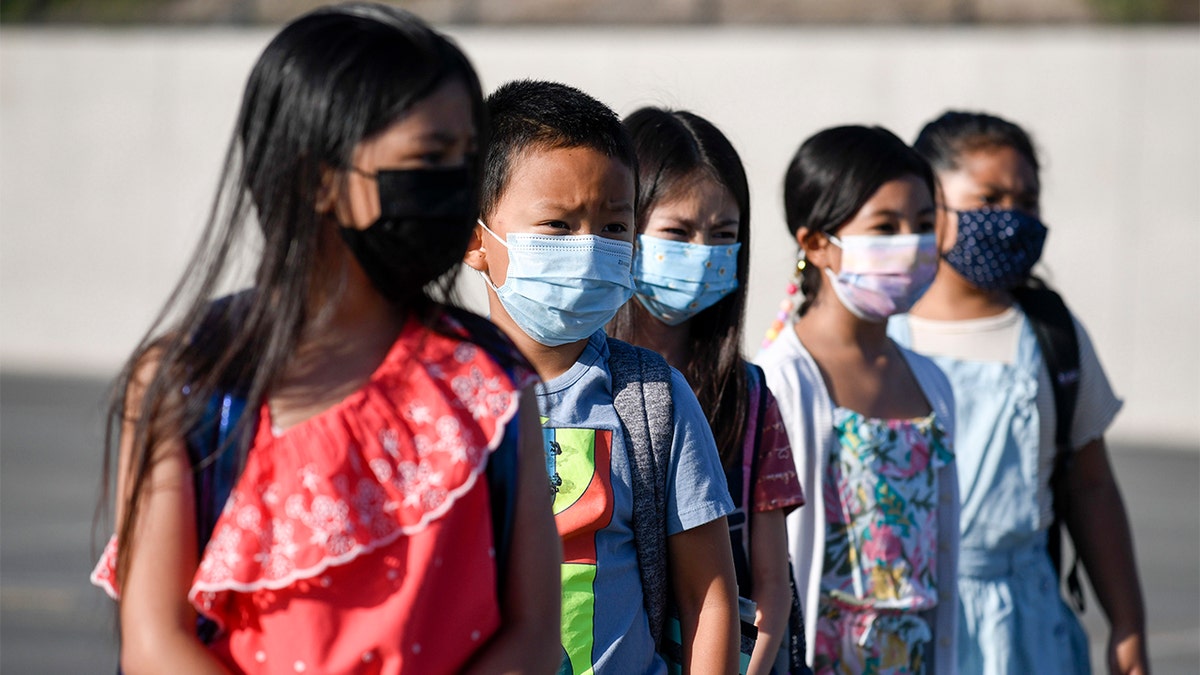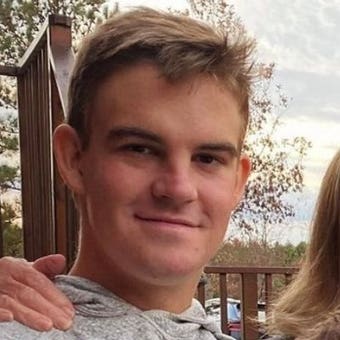Former CDC director: Do this and put the COVID pandemic behind you
Dr. Tom Frieden weighs in on what's next after the Omicron variant.
Children have a more difficult time recognizing faces that are masked than adults, which could harm their ability to "navigate through social interactions with their peers and teachers," according to a newly released study.
Erez Freud, a researcher at York University, who published his findings on Monday in the journal Cognitive Research: Principles & Implications.
Freud, along with two professors from Israel’s Ben-Gurion University, gave 72 children between the ages of 6 and 14 the Cambridge Face Memory Test, which measures facial perception abilities by presenting people with and without masks while upright and inverted.
When masks were included in the presentation, it led to a "profound deficit in face perception abilities" that was "more pronounced in children compared to adults," according to the study.

Elementary school students wearing masks in a classroom. (iStock)
Children had a 20% impairment rate for recognizing masked faces, while adults had about a 15% impairment rate.
CALIFORNIA'S INDOOR MASK MANDATE WILL END NEXT WEEK FOR VACCINATED INDIVIDUALS
The researchers also found that children tend to process faces by focusing on individual features instead of holistically when someone is masked.
"If holistic processing is impaired and recognition is impaired, there is a possibility it could impair children’s ability to navigate through social interactions with their peers and teachers, and this could lead to issues forming important relationships," Freud said. "Given the importance of faces to social interactions, this is something we need to pay attention to."

A child wears a face mask on the first day of New York City schools amid the coronavirus pandemic in Brooklyn, New York, U.S. September 13, 2021. (REUTERS/Brendan McDermid/File Photo)
Other studies have found similar declines in childhood maturation caused by a variety of factors during the pandemic, including stay-at-home orders, social distancing, and masks.
"Masks worn in public settings and in school or daycare settings may impact a range of early developing skills, such as attachment, facial processing, and socioemotional processing," Brown University researchers wrote in a study published last November that found children born during the pandemic have significantly lower overall cognitive performance than children born before the pandemic.
NEW JERSEY WILL ELIMINATE SCHOOL MASK MANDATE FOR STUDENTS AND STAFF
Not all research has found that masks impair social and emotional development though.
A study of 7- to 13-year-olds in December 2020 found that children were still able to accurately judge a person's emotions even when they're masked.
A study from before the pandemic found that a child's ability to make accurate inferences about someone's facial expressions was hindered by mask-wearing, but only about as much as when judging someone who is wearing sunglasses.

Masked students wait to be taken to their classrooms at Enrique S. Camarena Elementary School, Wednesday, July 21, 2021, in Chula Vista, Calif. (AP Photo/Denis Poroy, File)
CLICK HERE TO GET THE FOX NEWS APP
New Jersey, Delaware, and Connecticut announced on Monday that they are ending mask mandates for students and staff in schools.
California also announced Monday that its indoor mask mandate will end next week, but students and staff at K-12 schools will still be required to wear them.











































